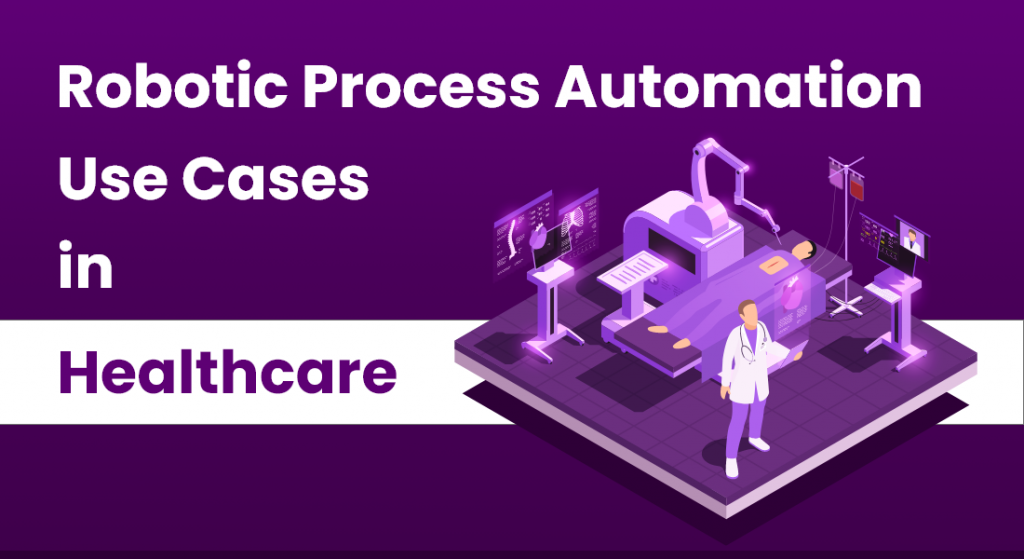Being among the most popular technology list nowadays, Robotic Process Automation has simplified various business processes by automation. Multiple industries use robotic process automation to minimize risk. Reducing errors, improving efficiency, and many more. The finance industry is one such where RPA plays a massive role in maintaining financial processes effectively. Numerous businesses are looking for top RPA development firms to help them digitally change their operations using RPA technology. These firms can give your company the tools and know-how it needs to convert manual processes into automated ones. From retail to banking to manufacturing to healthcare, all industries rely heavily upon automation to bring digital transformation to the business. There are many time-consuming tasks in the healthcare sector, such as clinical appointments, insurance registration, HR applications, and ERPs.
The Healthcare sector is where chances of errors can impact heavily, which is why automated healthcare solutions are in trend rather than relying upon human error nowadays. So Robotic process automation has been the right choice as it helps automate lengthy, time-consuming tasks critical in functioning. RPA in healthcare plays a significant role as it helps fulfill all the duties quickly, saves costs, and reduces errors, leading to increased work efficiency.
If we talk about the importance of the Robotic process automatically,
As per the Gartner data,” By the end of 2023, it was stated that spending on RPA technology would go beyond 2.4$ billion”
Healthcare systems that could be more effective continue to rely on flimsy and unsustainable manual chores and procedures. Automating complicated, judgment-based actions, robotic process automation, or RPA, can reduce inefficient methods and duties. Additionally, RPA can provide a smooth execution of front office duties like

Consequently, discuss some of the top applications for robotic process automation in the healthcare industry below.
As we know, appointment scheduling and managing take considerable time to process in the healthcare sector. Taking an offline appointment is not a feasible option to deal with nowadays, so there is a trend to make an online appointment that is common nowadays. Even though it may sound easy to develop a system where such scheduling tasks can be done, it is not. It takes efforts by RPA developers to deal with and design an application. It requires a lot of time in patient management tasks from all backend hospital staff and developers.
We can say that automation in healthcare helps in reducing such concerns. Here the first step can be with data gathering of patients, and based on that doctor’s data is found. RPA bots aid in streamlining the office support process and make it simple for the patient care team to manage appointments and patient inquiries in light of that. Here the benefits RPA can serve is that based on the availability and current status of the doctor, it updates the availability of the doctors too.
We know that the healthcare industry is where data comes from various sources such as GPs, third-party portals, appointment scheduling systems, or multiple databases. There are different countries where such appointment scheduling is still not centralized, where RPA in healthcare comes into the picture and plays a huge role in streamlining the data. Once such automation is applied in healthcare, it helps in reducing manual tasks such as data keeping and patient information storing. Robotic process automation is an ideal solution to increase work efficiency and data accuracy in healthcare. Additionally, the demand to hire RPA engineers is vast to ensure that data-sharing tools are following privacy concerns. Here automating with robotic processes leads the healthcare sector to a fast detection process and reduces the processing time in responding.
While treatment is going on, there are various tasks healthcare staffs need to go through functions, such as monitoring data, evaluating bills, etc., which is time-consuming and error-leading. Also, managing records of various tests, doctor feeds, etc., in the healthcare sector is very much needed to calculate the patient bill accurately. Here Robotic process automation helps calculate all the bill amounts related to the cost of testing, bedroom, medicine, food, etc., leading to a smooth and less complicated process. So the implementation of robotic process automation healthcare sector helps reduce delays and, with fewer efforts, speeds up the accounting settlement process.
In recent years, we have faced a situation like covid where the healthcare sector has dealt with so much of a lack of resources. So to overcome such issues in upcoming years, robotic process automation plays a vital role in combining a model with proper sensors and cloud-based panels so that we can get the data of where the equipment is located and also find the accuracy regarding other medical inventories.
So here, robotic process automation helps with proper stock management of hospital inventories to maintain seamless and transparent hospital operations.
Once the medical treatment is done, there are still other things to take care of, which is time-consuming and tedious to do manually too. Here robotic process automation helps manage post-discharging before they reach home from the hospital. Also, such automation helps send relevant reminders about necessary post-surgery actions patients need to take to recover quickly. Along with this robotic process, the automation model allows staff to measure blood pressure and heartbeat rate and, based on that if any serious steps need to be care.
In such a situation, robotic process automation becomes a communicational tool from the hospital to the patients at home. So it develops patient experience and increases satisfactory results.
Thus, unlike other fields, Robotic process automation plays a huge role in the healthcare sector, as mentioned above benefits. Robotic process automation always has been before automating the daily tedious tasks and making the business process efficient. So there is no doubt that the demand to hire RPA engineers will rise to automate the business process irrespective of any sector. For knowing further technology blogs in-depth do checkout: devtechtoday